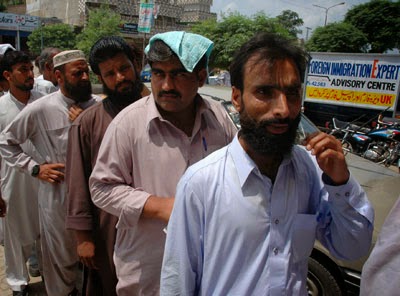This last blog is going to be more
of an opinion piece than a piece where I’m giving a lot of quotes out of a book
or from websites to support my ideas as facts…with that being said, I highly
believe in English being used in other countries, and I believe that we, as a
country need to also have some languages learned, such as Spanish. “Many
conservatives oppose its use, yet it must be mastered if citizens are to
participate in global business and politics.” (1)
So many immigrants come here from other
countries and don’t know our language and they have to learn so much in order
to communicate and connect with the new cultures they have come into. An
example of this is a student I have been working with recently. She has just
come to the United States from Japan and she has entered a new place, been put
into a new house, a new environment, started school for the very first time
EVER (she’s 4), and she’s been given a
new name as her parents wanted her to become “Americanized.” So completely
unfair, she’s only been here for a week, and she’s trying to adapt and she
doesn’t know a word of English.
On the complete opposite side of
the scale, my husband moved here from the Philippines 23 years ago. In the
Philippines, English is a REQUIRED language and is taught to citizens as young
children. It’s a subject in school just like Math, Science, History, and the
other topics that are taught. When my husband moved here, he was supposed to be
in seventh grade, but when he was tested for placement in school, he was put
into the ninth grade! He was completely prepared for school because he knew
English, he only had to adapt to the new cultures that he moved into, I believe
because of this it made things less stressful for him.
I think that in the global business
and political arena, it is best that the language is English because it is common
for all countries to use it and since so many people move around to different
places, it just seems logical that there be that one common language for all to
go to.
Like I said earlier however, I
believe we live in a country where we need to learn Spanish as well as
communicate in English. We have several people who communicate in only Spanish
and as they are learning the English language, I think we should learn Spanish
so that communication would be easier for all, especially for those like me who
are striving to be school teachers. I think that it would make communication a
lot easier.
Question:
Do you believe that every country should learn English? Why or why not?
Question:
Do you believe that every country should learn English? Why or why not?
Works Cited:
(1) Rowntree, et al. Globalization and Diversity: Geography of a Changing World. New Jersey: Pearson Prentice Hall, 2011
(1) Rowntree, et al. Globalization and Diversity: Geography of a Changing World. New Jersey: Pearson Prentice Hall, 2011














